“I’ve travelled to Singapore quite a few times, and of course I’m a football player, but I also like to see and experience many cultures and countries. Every time I came to Singapore, I always felt like it was a Western European world in Asia. I always felt it would be great to work, play or live here, so when this opportunity came, I couldn’t say no!”
Those were the words of former Geylang International frontman, Sylvano Comvalius.
Now 33, the Dutch journeyman might just have said farewell to the 22nd club of his career, but his burning desire for success remains unfettered. With over a century of career goals already scored and plenty more still to come, it is fair to say the former Ajax youngster has enjoyed what can only be described as an illustrious career. From Schalke 04 to Balestier Khalsa, the Amsterdam native has seen it all.
As a young boy growing up in the areas surrounding the Amsterdam ArenA, it wasn’t long before young Sylvano was bitten by the football bug. With a European giant on his literal doorstep, it would be hard to imagine anything else.
“I’m a big, big, huge Ajax fan,” he relayed excitedly in an exclusive interview with Goal. “I was selected to join their academy, it was incredible. You can’t just register with them; you have to be chosen. Every year there are thousands of kids who want to join, they do try-outs, they scout, and to be chosen from so many kids as one of three selected was a great honour and a dream come true.
"Ajax at that time were the best team in Europe, they had just won the Champions League. For someone born and raised in Amsterdam, who’s a big fan of the club, it’s double as amazing.”
While at the club, he linked up with some big names. Among his youth team team-mates were Ryan Babel, who enjoyed success later with Liverpool and Besiktas, as well as Gregory van der Wiel, who went on to become PSG’s starting right back, being capped 46 times by the Netherlands in the process. Also there was former Sunderland and Dynamo Kyiv winger Jeremain Lens.
 Getty Images
Getty Images
It was unfortunate for Sylvano that he had to leave the club prematurely compared to some of his illustrious teammates, but it’s something he looks back on philosophically now.
“I left the club at 14, life moves so fast. They always develop and they’re always looking for better players. I wasn’t good enough to make it to the first team, but I had already picked up my basics there. For me, that was great enough,” he said.
The Ajax adventure might have been over, but Sylvano certainly wasn’t done. As he sought out his next move, the striker spent a couple of seasons at lower division Dutch clubs, FC Omniworld and Quick Boys. While it wasn’t easy making the move from one of Europe’s elite clubs to the Dutch third tier, Sylvano’s passion for the game coupled with his father’s encouragement meant he was never going to give up.
“If you play for Ajax, you’re in one of the best academies, with the best coaches, everything is organised from trainings to equipment. The moment I had to leave Ajax, that was the point where my character and my vision to become a professional footballer was shaped. Once you leave Ajax, it’s always going to be a downgrade wherever you go, because Ajax is the top team in Holland and there’s no club like them,” he explained.
“At that age, I was lucky my parents taught me it’s not a downgrade, but a chance to follow another road. My father always told me it doesn’t change my vision of going pro. Some take the straight way, others go the long way. Leaving Ajax and moving to several different other teams, it was a really good thing for me. The main thing was that I really loved football and wanted to become a pro. That vision never left me.”
And soon, Sylvano received an offer that would go on to shape his entire career. It came from Hamrun Spartans FC, a top tier club from Malta. It would be a big jump - a first foray out of his home country, and the chance to make a name for himself at a professional club abroad. It wasn’t one he was about to let slip.
“At that point in time, when I played for FC Omniworld, I was already 20 and I didn’t get a professional contract, and I didn’t really manage to get into the first team. I knew I had the potential, and the people knew I had the potential, but I didn’t get the opportunity. I wasn’t interested in where it was, I just wanted to get the opportunity. At that point, I had the chance to go to Malta, and I took it with both hands. I really wanted to play in the first team, and I think my statistics show when I made that move, I exploded,” he revealed.
With his club Hamrun Spartans being relegated in his first season, Sylvano decided to leave the club, and ended up joining another Maltese outfit, Birkirkara, who were playing in Europe and challenging for the league title. And that was where he really took off. With 15 goals and seven assists in his first season, the centre forward began attracting offers from far and wide, some from continental Europe and even one from Russia. The moves failed to materialise, but the Dutchman knew it was time to take a step up from Maltese football.
“I scored lots of goals, and I was really ready for it, I was hungry and ready to show myself. The opportunity in Malta came at the right moment, and it showed me that sometimes you have to look further, rather than stay in the same position, the same country. Opportunity is everywhere. I enjoyed it, it’s a beautiful country and I finally had the chance to show myself. I learned a lot. First time being away from home, being alone, being treated as an adult. Before that I just lived at home, and all of a sudden, you’re abroad, different language, need to take care of yourself. That was one of the greatest experiences I had, and it shaped my character and my vision of life,” he reflected.
What followed was a whirlwind of transfers and clubs. Having only played in two countries his entire career at that point, Sylvano found himself playing for four clubs in four different nations across two continents between 2010 and 2012. From Scotland to Kuwait, Kazakhstan and China, the striker had well and truly begun his journey playing football across the globe.
“It’s been a very wild ride!” he chuckled. “When I left Malta, I just wanted to improve my career and play at a higher level. I moved to Stirling Albion, and the idea was to do well and to make the jump into the English Championship or the SPFL. Over there, I didn’t earn any money, it was just for development. But just a month before I signed, my first son was born, so of course I also became responsible for my family and paying bills.”
“I got a great offer from Kuwait, where I could earn really good money. That gave some stability to my family, so it was the main reason to move. The step that followed was similar, I could make huge financial improvements moving from Kuwait to Kazakhstan and then to China. At the time, China had some huge players like Nicolas Anelka and Didier Drogba. When I had the opportunity, I was ready for it. I always had the dream to play in Europe, but money is important as well,” he elaborated.
When quizzed on whether he struggled with having to adapt and re-adapt so quickly to different countries and cultures, Sylvano was nonchalant, and attributed his cultural versatility to that early-career stint in Malta.
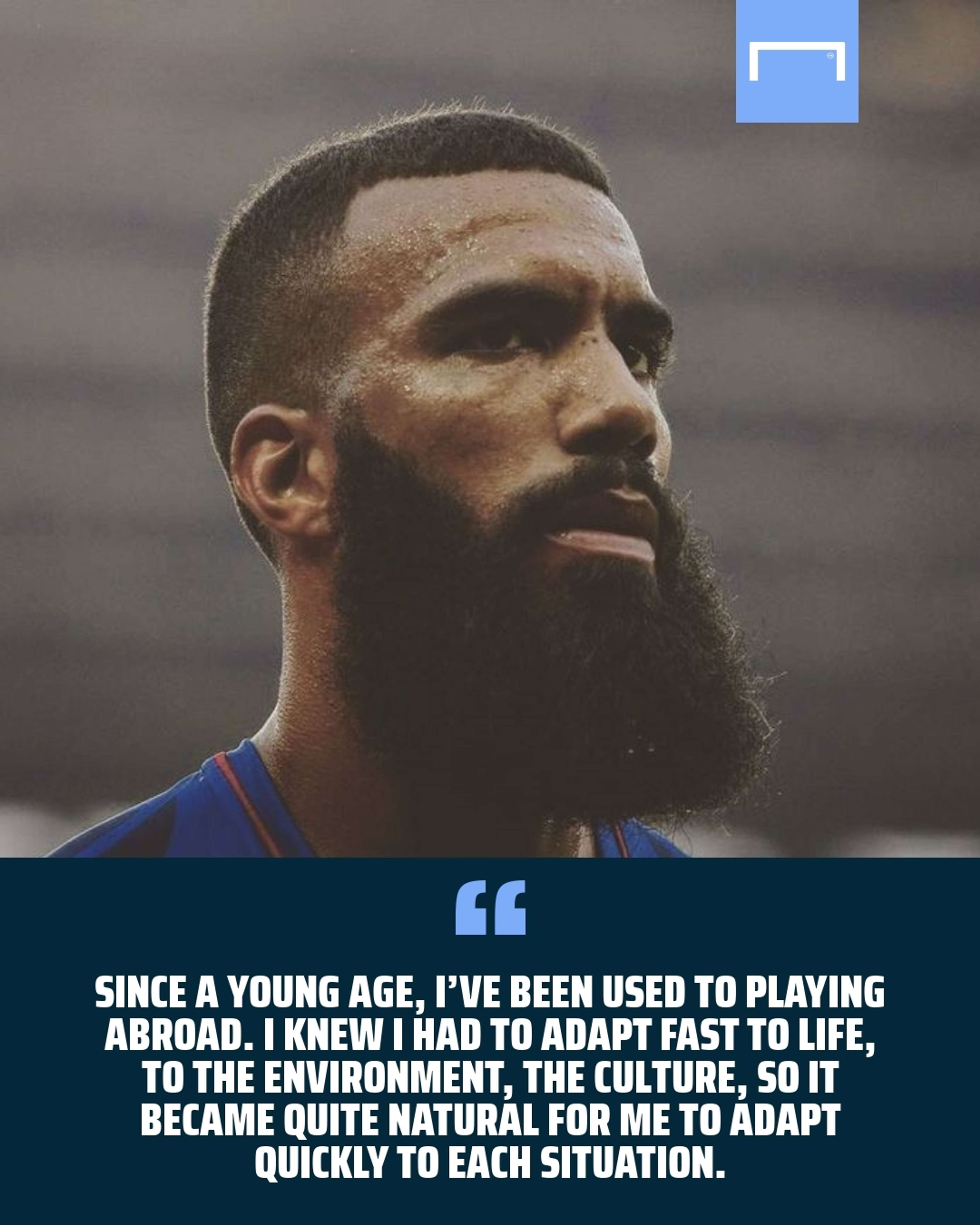 Instagram account Sylvano Comvalius
Instagram account Sylvano Comvalius
“Since a young age, I’ve been used to playing abroad. My first year in Malta, they treated me really well, but from that point everywhere I went afterwards, it was quite similar. I knew I had to adapt fast to life, to the environment, the culture, so it became quite natural for me to adapt quickly to each situation. I think if I had moved at the age of 28 or 30, it would’ve been totally different, but as I was so young, everything became very natural,” he said.
Despite a productive stint in China, however, Sylvano was not comfortable with the idea of being so far from his family for so long. With his wife and son back in the Netherlands, he made the decision to move back to Europe, even if it meant taking a step down in quality. The opportunity came from fourth-tier German outfit Eintracht Trier, who gave the Dutchman the chance to play football close to home. The idea was to stay for a year before moving back to Asia, but with Sylvano plundering 13 goals and 10 assists in 34 league games for his new side, major clubs in the Germany began to take notice.
“Eintracht Trier was not a club at my level, because I had quite a good CV,” he admitted. “But for me at that point, I just wanted to play, be happy and be close to home. The intention was to move back to Asia, but when I had a good season, I caught the interest of quite a lot of big teams. I had offers from FSV Frankfurt, Hansa Rostock, quite a few interesting clubs, and there was Dynamo Dresden of course. They invited me over, and when I went there and saw the stadium, knowing how big a club it was, I knew it was an opportunity I couldn’t let go,” reminisced Sylvano.
With Dresden being one of East Germany’s biggest and best supported clubs, winning eight league titles prior to reunification, it was a huge move for Sylvano, and one he enjoyed thoroughly.
“Fantastic experience. I signed for two years, we had a really good half year, we even beat Schalke in the Cup. They had top players like Julian Draxler, Klaas-Jan Huntelaar and Kevin-Prince Boateng. That says a lot about the team we had. But after the winter break, the coach was sacked, we started to play a different system, and I wasn’t playing much anymore,” he explained.
To this day, Sylvano maintains that the level of football he experienced with Dresden was the highest of his career. Discussing the level of professionalism, the striker revealed that the club possessed top quality facilities, coaches and analysts, and operated with a huge budget, all with the aim of reaching the top.
“The level with Dresden, we could play in the Eredivisie, 100 per cent. It can’t be compared to the leagues I played in in Asia. You can’t compare it to leagues in Singapore, Malaysia, Indonesia. Impossible. The standard of football and the tempo are so high. If I look at some of the games, when I look back at some highlights and I see the tempo, it’s unbelievable I played at that level when I see where I’m playing now!” he laughed.
Soon though, the time came to leave the club. Sylvano was not playing regularly under the new coach, and despite an offer to extend his stay, decided to move on. Up next was a move to Ukraine, which preceded his first foray into Southeast Asia.
“I wasn’t really attracted to Southeast Asia,” he admitted. “But there came a point when I signed in Ukraine for three years, a good level, but we had huge problems at that club. There was an economic crisis, and we didn’t get paid for four to five months. I’m a family man, I have to provide for my family. The situation became worse, and after the transfer window in Europe closed, I started to look elsewhere, and then Southeast Asia came into view. I had the opportunity to go to Bali United,” said Sylvano. That was when the Indonesian adventure truly kicked off.
“When I had the chance to go to Bali, under a German coach who knew me from Germany, I was like 'okay, why not?' I went there with a ‘let’s see’ mindset,” said Sylvano of his decision to move.
“To be honest, I had no idea about Bali, or that it was a tourist destination or whatever. I didn’t know there was any football there. I knew about Persebaya, but I had never heard of Bali!” he admitted sheepishly. It didn’t matter to Sylvano though. He just wanted to continue playing. With the club having posted mid-table finishes in the years prior to his arrival, the striker went into the club with minimal expectations, and wasn’t exactly blown away by their facilities and attendances.
“They didn’t have good facilities, not many supporters, it wasn’t full like it is nowadays. I think up to the first 10-15 games I played, the people were still not 100 per cent supporting the team and the club. But when things really started to go good, people noticed we had a really good team and heard about the striker scoring every week, we started to get more and more supporters! We played such attractive football; it was a joy to watch for everyone. Not just people from Bali, the whole of Indonesia was watching our team. It ended with me being top scorer,” he relayed proudly. The Dutchman ended the season with a record-shattering 37 goals in 34 games.
Despite finishing second in the league behind Bhayangkara, losing out on head-to-head record, the journey with Bali was an incredible one for Sylvano. He paid tribute to football supporters in Indonesia, not just those of his own club, but fans up and down the peninsula for making the experience unforgettable.
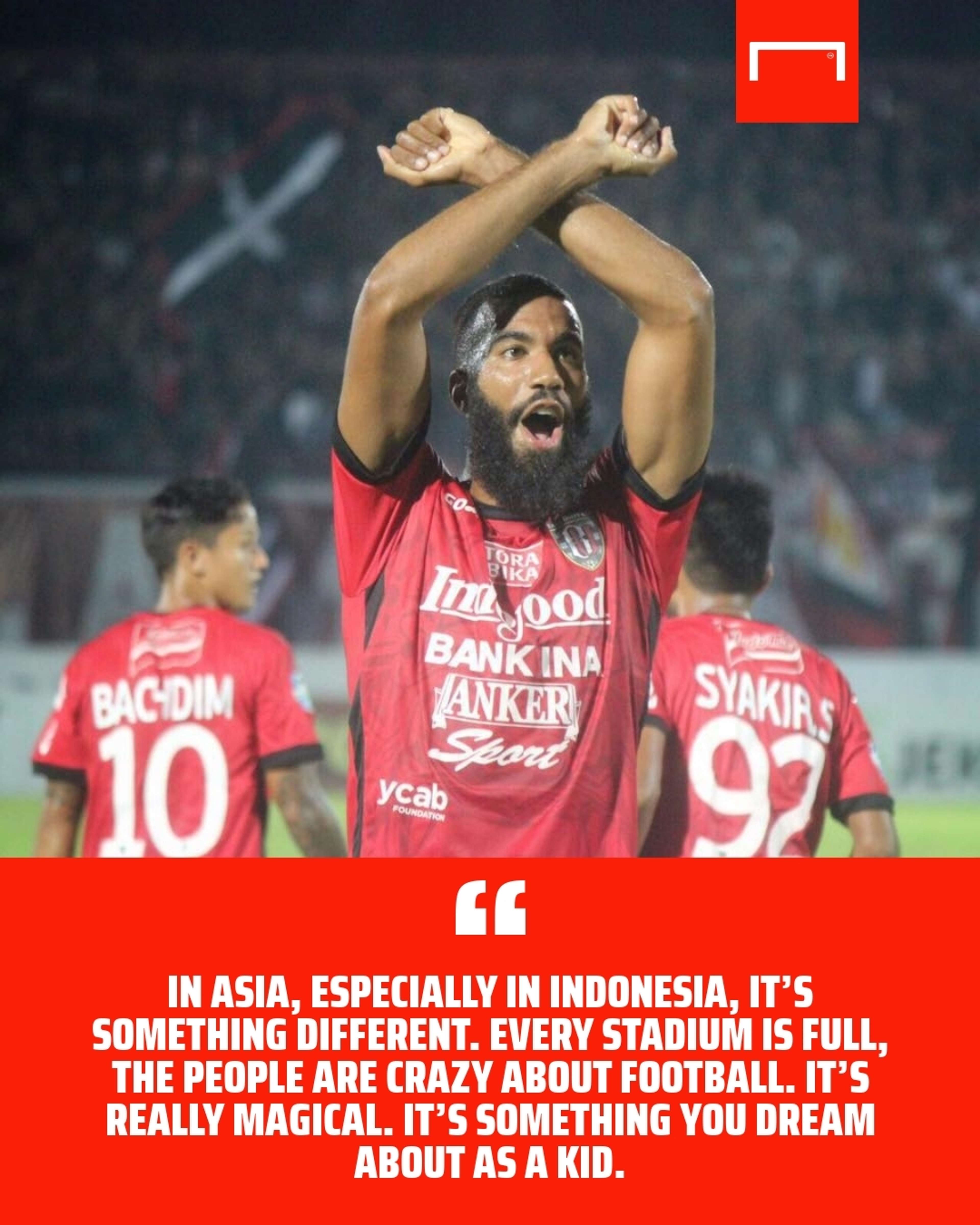 Facebook account Sylvano Comvalius
Facebook account Sylvano Comvalius
“I know it’s something I won’t find anywhere else. It’s something you dream about as a kid. I was lucky to have that in Dresden, where we played every week with 25 to 30,000 people. But in Asia, especially in Indonesia, it’s something different. Every stadium is full, the people are crazy about football. It’s really magical.”
With the pandemic having disrupted his time in Indonesia, Sylvano most recently found himself playing for Geylang International in the Singapore Premier League, having made the move here at the start of 2021. Having previously described Singapore as one of the countries on his bucket list, the striker’s five months in the Lion City were a mixed bag of emotions so far.
“It was up and down to be honest,” he admitted. “The main thing was because I was without my family. That was one of the reasons I came, to join Geylang with these conditions, but my family needed to be with me, because I have small kids.
"Football wise, it was up and down. I started okay, then had a little setback with injury, and then the issue with my family was taking a toll. The government rejected their visa applications twice, so it was really not an easy one.”
Indeed, his family's inability to obtain a visa and join him in Singapore eventually made Sylvano decide to end his time with Geylang prematurely in order to be able to be reunited with the people close to him.
An understandable decision from a true family man, even if it means he will now miss out on playing in the AFC Cup with the Eagles.
“For me, it was one of the reasons I joined Geylang. I’ve never played in the AFC Cup, so I was really looking forward to it,” he said.
Having scored twice for Geylang in seven SPL appearances, Sylvano was honest with his assessment of the league’s standards, which despite having great potential to improve, still has some catching up to do.
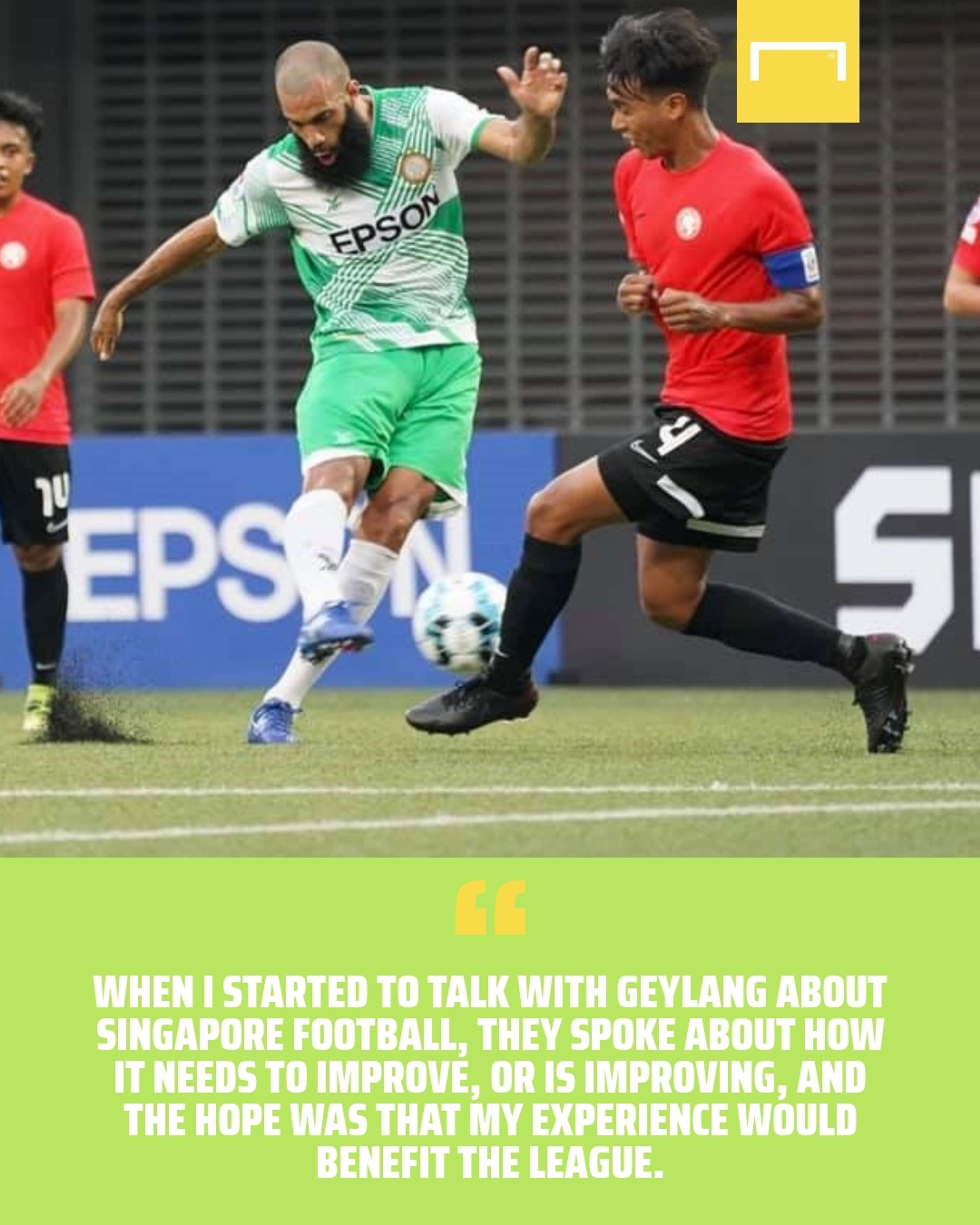 Singapore Premier League
Singapore Premier League
“When I started to talk with Geylang about Singapore football, they spoke about how Singapore football needs to improve, or is improving, and the hope was that my experience would benefit the league. I think Singapore football has a lot of space to improve. You have everything here, there’s enough quality players, there’s the financial part, because Singapore is a wealthy state, but the next steps need to be taken. I think if you compare Singapore to the other countries I’ve been, like Malaysia, Indonesia, China, we don’t need to lie. We’re still behind,” he analysed.
When asked about what needs to be done in order for the SPL to reach the level of its regional rivals, Sylvano stressed the importance of greater investment into coaching staff, facilities and infrastructure, as opposed to spending big on foreign players. Referencing the Thai League, which he played in during a stint with Suphanburi in 2018, Sylvano explained that the way they managed to make the jump into a top Asian league was through hiring the right expertise in the right management positions - not bringing in expensive players as temporary stop-gaps.
“The gap is quite big. Especially financially. Now you have Lion City Sailors trying to invest and inject quality into the football here, but the other teams are all around the same level. Most of the clubs are dependent on financial handouts. If you compare that to Indonesia, where there are 30,000 people at the stadium who bring money into the club, they can afford more. This leads to better local players, better foreign players, and an overall improvement. You need both expertise and finances to improve,” he noted.
“For me, in Southeast Asia, they still believe sometimes that a coach and one assistant is all you need. It’s not enough. If you want to improve, you need four, five people around the coach helping him because that’s how you improve the standard. They’re necessary. A coach alone cannot do the job, it’s not like 20 years ago. If you want to improve the players individually, you need people who have time to do that. If my coach wants to improve each player, he needs to spend one hour for each player, 20 times.”
“You have everything in Singapore to succeed, but we have to take the first step. Signing a couple of good players, like me, that’s not going to fix things. It’s just a temporary solution. You need to work on something long term.”
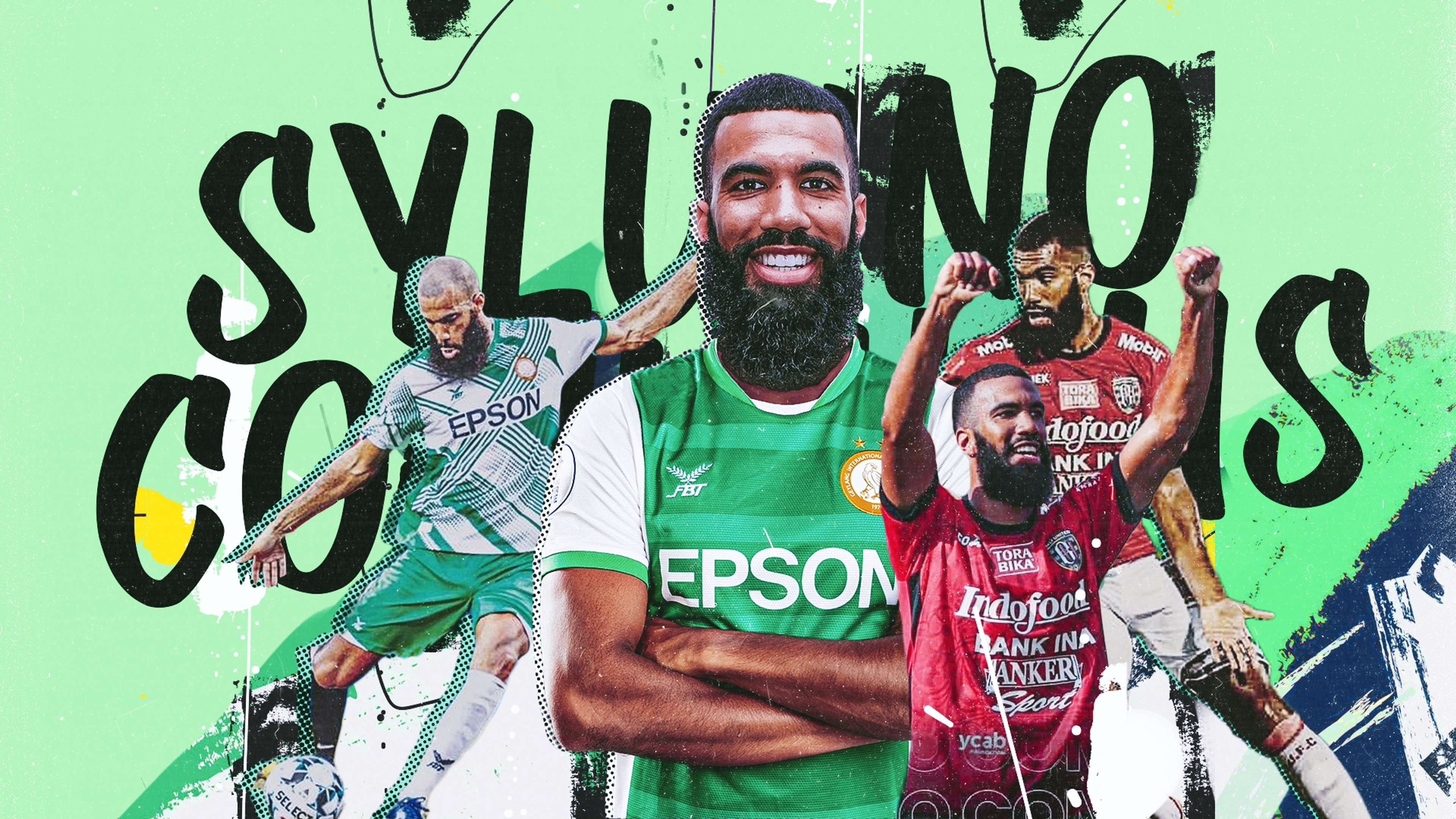

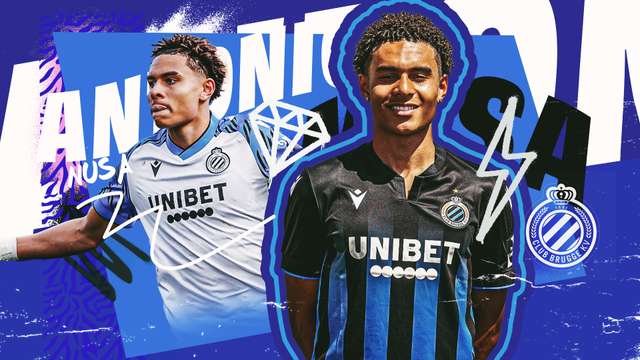
.jpg?auto=webp&format=pjpg&width=640&quality=60)
.jpg?auto=webp&format=pjpg&width=640&quality=60)